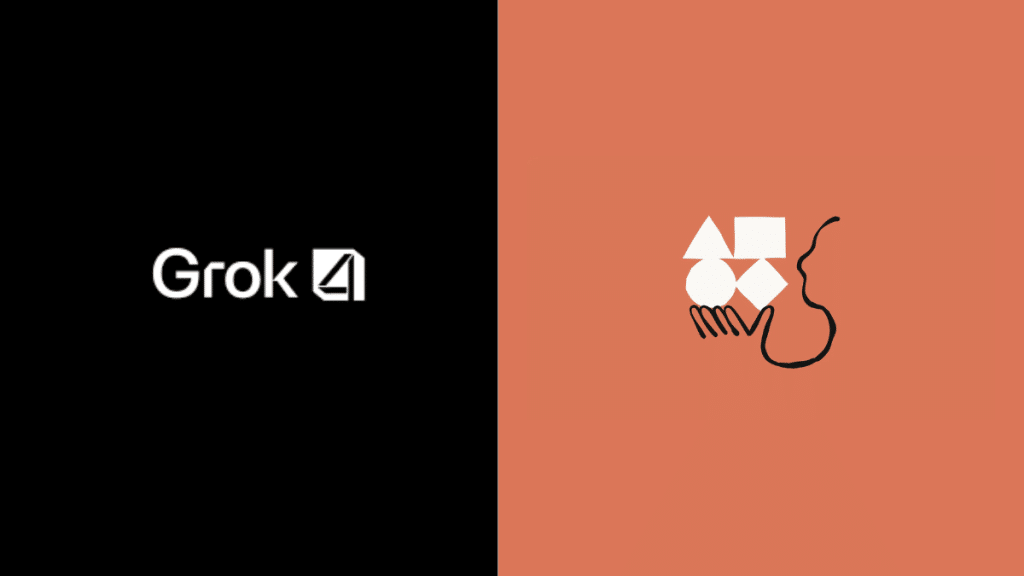When I first stepped into the world of AI tools, I thought choosing one model was enough. But in 2025, with powerful options like the Claude Opus 4 API and Grok 4 API, the decision isn’t that simple.
I’ve personally used both for different client projects, some focused on SEO content, others on automation or coding tasks. So, in this blog post, I’ll break down everything I’ve learned from real usage, so you can decide which API suits your needs best.
No hype, no jargon—just honest, hands-on insight.
A Quick Introduction to Both APIs
What is the Claude Opus 4 API?
Developed by Anthropic, Claude Opus 4 API is designed for deep thinking, structured writing, and advanced coding tasks. It’s reliable, safe, and built for long-form content creation, complex software builds, and document analysis.
I’ve used it to summarize 100-page research papers, generate full SEO audits, and even debug long scripts—and it didn’t disappoint.
What is Grok 4 API?
Created by xAI (Elon Musk’s AI company), Grok 4 is a fast, web-connected, real-time reasoning model. It pulls data from X (formerly Twitter) and the web and can process large inputs, even images.
I once needed live trends and web data for a tool I was building, and Grok 4 gave me exactly what I needed, on the spot.
1. Core Differences at a Glance
| Feature | Claude Opus 4 API | Grok 4 API |
| Developer | Anthropic | xAI (Elon Musk) |
| Strength | Coding, analysis, and long-form tasks | Real-time search, multimodal (text + image) |
| Context Limit | 200k input, 32k output tokens | 256k tokens total |
| Web Access | No | Yes (real-time from X & web) |
| Tool Integration | AWS, Google Vertex AI, Claude Console | Native to X (formerly Twitter) and xAI tools |
| Price per Output | $75/M tokens | $15/M tokens |
| Thinking Modes | Fast + Thoughtful modes | Real-time & agentic reasoning |
2. Which One Is Better at Coding?
From my work:
- Claude Opus 4 is hands down the best I’ve used for Python, HTML, and backend scripting. It can debug, rewrite, or write from scratch. I’ve even used it on 6-hour code sprints for client automation.
- Grok 4 can write code too, especially simple scripts, but it shines more when the code needs live inputs or real-time data.
So if you want long-term, scalable code, go with Claude.
3. What About Research and Writing?
I built a tool that takes transcripts, summarizes them, and generates blog drafts. I tested both models for the writing step.
- Claude Opus 4 gave me clear, structured, thoughtful writing. It felt like having an editor who understands tone and depth.
- Grok 4 gave quick summaries but struggled with structure and flow in longer outputs.
If writing or summarizing is your focus, Claude Opus 4 API will give you more reliable, human-like output.
4. Grok’s Real-Time Edge
Where Grok truly wins is speed and freshness.
In a campaign for trend-based social content, I used Grok to pull current discussions from X. Within seconds, it gave me trending hashtags, user quotes, and article links. That’s something Claude simply doesn’t do—because it doesn’t browse the web.
If your use case needs live data, Grok 4 API is a must.
5. Use Case Comparison
| Use Case | Best Choice | Why |
| Live News Monitoring | Grok 4 API | Real-time web access |
| Writing SEO Articles | Claude Opus 4 API | Thoughtful, well-structured writing |
| Long Coding Projects | Claude Opus 4 API | Handles multi-step code flows reliably |
| Social Media Automation | Grok 4 API | Pulls trending info from X instantly |
| Legal or Technical Summarization | Claude Opus 4 API | Handles documents intelligently |
| Visual + Text Analysis | Grok 4 API | Accepts images and long text |
6. Safety and Reliability
- Claude Opus 4 is built with safety and ethics at its core. It doesn’t hallucinate often, and it even explains its reasoning.
- Grok 4 has had a few red flags—since it connects directly to social content, it can reflect unfiltered or harmful opinions.
If trust and stability are a priority (especially in professional settings), Claude wins.
7. Cost Breakdown
Here’s what you can expect to spend:
| API | Input Tokens | Output Tokens |
| Grok 4 | $3/M | $15/M |
| Claude Opus 4 | $15/M | $75/M |
Tip: I usually use Grok 4 for input-heavy tasks (like live data pulls), then pass that output into Claude for deeper processing. That way, I keep costs low while getting the best from both tools.
8. My Setup (How I Use Both)
In one of my recent SEO projects, I used Grok 4 to pull competitor headlines and latest backlinks. Then I fed that into Claude to rewrite it all into clean reports and optimization steps.
I used a simple Python script with API calls and caching. It worked like magic—and I’ve now used the same flow for three different clients.
Final Decision: Which Should You Pick?
Here’s the truth:
- Claude Opus 4 API is the best AI tool in 2025 for coding, writing, research, and any long-form task.
- Grok 4 API is the best AI tool if you need real-time data, image handling, or fast, flexible queries.
But you don’t always have to choose. If your budget and workflow allow, use them together to build more advanced, smarter tools.
In 2025, it’s not just about using AI, it’s about combining the right AIs for your needs.
Let me know if you want a free setup guide or custom workflow using both APIs. I’d be happy to share what’s working for me and my clients.
